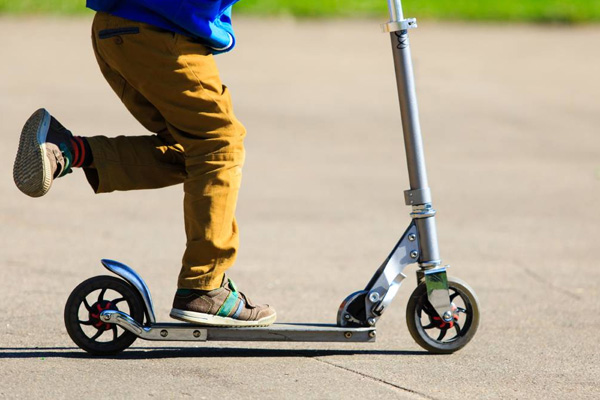
Outdoor activity and neighbourhood safety
New research from Curtin University finds links
Posted on 20.09.2021
Every child has the right to feel safe and be physically active.
However, new research from Curtin University has found that primary school-aged children in neighbourhoods considered unsafe have fewer opportunities to be active outdoors than children who are living in safer areas.
Children build up their recommended daily physical activity through organised sport, playing, walking, cycling or scootering to local destinations in their community.
Yet, this research – which reviewed studies across the world – found that parents’ concerns about personal safety and road danger correlated with a lower amount of daily outdoor active behaviour for their children.
Living in areas where parents feel unsafe was linked with a reduced amount of children playing, exercising or being physically active.
Young females were generally less active, more often in neighbourhoods considered unsafe.
Understanding children’s own safety concerns was not addressed as much as those held by their parents.
Yet, available studies showed personal safety including “stranger danger” and road safety concerns among children were always linked to lower activity levels.
Having a family car and the perception of travelling greater distances reduced the likelihood of children walking or cycling to destinations, including schools.
However, clever design of urban areas and roads was shown to reverse the effect of the long-distance and offer children the chance to actively travel further.
Children who lived in a mix of residential and commercial neighbourhoods made more active trips.
This research tells us that current urban planning and road designs are not providing a sufficiently safe environment for children to play and travel outdoors, despite the well-documented link between physical activity and their mental health and social interaction skills.
Collaboration at all levels, including children, families, schools, communities, city planners and policymakers, would offer better play and safer travel opportunities.
Designing child-friendly cities and play spaces by listening to children’s safety concerns and offering parental education programs to promote outdoor independent play and active travel would make a huge difference.
It’s also important that urban planners address the relevant neighbourhood’s characteristics in their new or updated designs of local places while also factoring in gender and children’s ages.
Source
Roula Zougheibe
Curtin University
This story Study finds links between outdoor activity and neighbourhood safety first appeared on The Canberra Times.
Have a story to tell or news to share?
Let us know by Submitting a News Story







